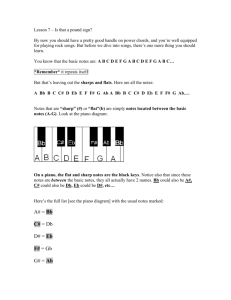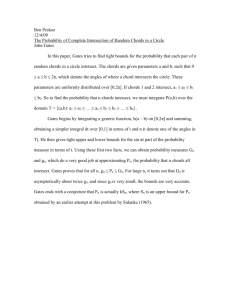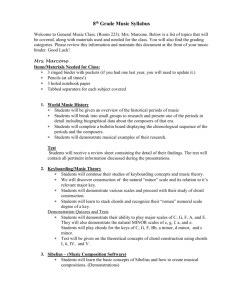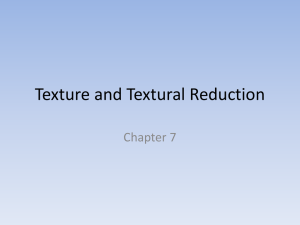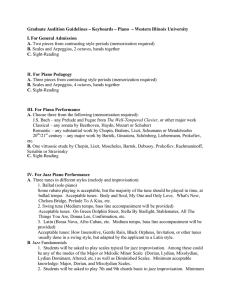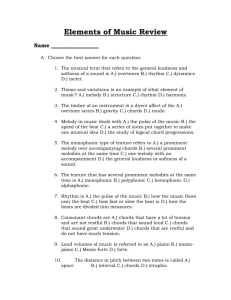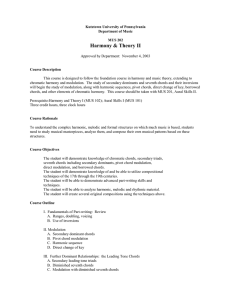Music Appreciation - Central Columbia School District
advertisement
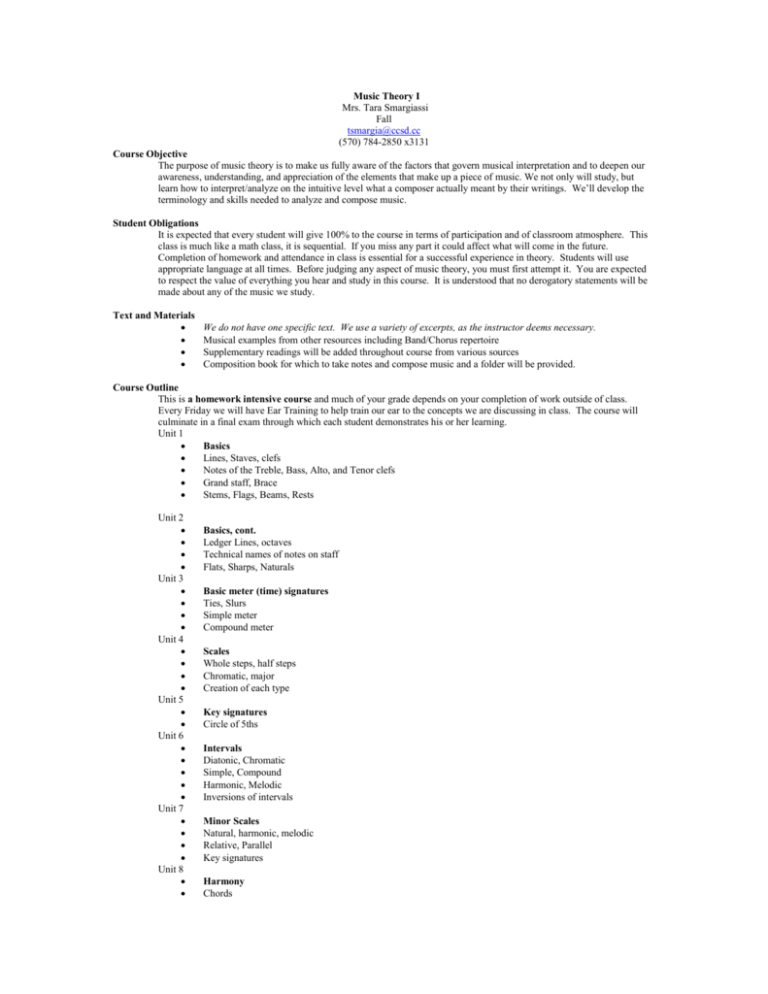
Music Theory I Mrs. Tara Smargiassi Fall tsmargia@ccsd.cc (570) 784-2850 x3131 Course Objective The purpose of music theory is to make us fully aware of the factors that govern musical interpretation and to deepen our awareness, understanding, and appreciation of the elements that make up a piece of music. We not only will study, but learn how to interpret/analyze on the intuitive level what a composer actually meant by their writings. We’ll develop the terminology and skills needed to analyze and compose music. Student Obligations It is expected that every student will give 100% to the course in terms of participation and of classroom atmosphere. This class is much like a math class, it is sequential. If you miss any part it could affect what will come in the future. Completion of homework and attendance in class is essential for a successful experience in theory. Students will use appropriate language at all times. Before judging any aspect of music theory, you must first attempt it. You are expected to respect the value of everything you hear and study in this course. It is understood that no derogatory statements will be made about any of the music we study. Text and Materials We do not have one specific text. We use a variety of excerpts, as the instructor deems necessary. Musical examples from other resources including Band/Chorus repertoire Supplementary readings will be added throughout course from various sources Composition book for which to take notes and compose music and a folder will be provided. Course Outline This is a homework intensive course and much of your grade depends on your completion of work outside of class. Every Friday we will have Ear Training to help train our ear to the concepts we are discussing in class. The course will culminate in a final exam through which each student demonstrates his or her learning. Unit 1 Basics Lines, Staves, clefs Notes of the Treble, Bass, Alto, and Tenor clefs Grand staff, Brace Stems, Flags, Beams, Rests Unit 2 Unit 3 Unit 4 Unit 5 Unit 6 Unit 7 Unit 8 Basics, cont. Ledger Lines, octaves Technical names of notes on staff Flats, Sharps, Naturals Basic meter (time) signatures Ties, Slurs Simple meter Compound meter Scales Whole steps, half steps Chromatic, major Creation of each type Key signatures Circle of 5ths Intervals Diatonic, Chromatic Simple, Compound Harmonic, Melodic Inversions of intervals Minor Scales Natural, harmonic, melodic Relative, Parallel Key signatures Harmony Chords Building triads Major, minor, augmented, diminished Voicing for 4 part writing Unit 9 Inversions of Triads Chords in a key – Scale Degrees Unit 10 Rules for 4 part voice writing for doubling Unit 11 Harmonic Cadences Authentic, Plagal, Half, Deceptive Unit 12 Non-Chord tones PT, NT, SUS., RET., APP., ET, NG, ANT., PP, CG, CT Unit 13 Articulation Tie, Dot, Accent, Tempo, Measure, Pick-up, Syncopation Types of Accents – Tonal, Agogic, Dynamic Unit 14 Seventh Chords Dominant 7th Chords Inversions of 7th chords Resolutions of 7th chords Doublings when using 7th chords Unit 15 Chord Connection Contrary, Oblique, Similar, Parallel motion Rules for connecting chords Voice crossing, voice overlap Unit 16 Chord Structure Open, Close Unit 17 Transposition Define Instruments – in general, specific Woodwind Quartet Brass Quartet Clarinet Quartet Unit 18 Basic harmonization of a melody How??? Final Exam The most efficient means of contacting me with questions is through email although the high school office can usually locate me in the district if parents would like to contact me by phone. Grading There are four main evaluations throughout the course for which you will receive a grade: 1. Homework Assignments – COMPLETED DAILY!! 2. In class work 3. Composition(s) – how many depends on time 4. Final Exam In addition to the above, you will also receive grades for: 1. Ear training attempts 2. Class Participation (including singing) A 93-100 - Excellent D 70-76 - Poor B 85-92 - Good F 69 or below - Failure C 77-84 - Average Punctuality is important. Points will be deducted from homework assignments that are not turned in on the date due. Points will be deducted from your class participation grade each time you are late to class without a pass. In addition, no extra time will be allowed to make up a quiz or any other missed work unless a valid pass is presented. It is understood that students may miss a class from time to time for illness and school approved absences. Assignments/quizzes missed will be made up on the next day the student is in school. Points will be deducted for each additional day the work is late unless special arrangements are made with the teacher. Work missed for unexcused absences or skipping will not be made up and students will receive a grade of zero for that assignment in addition to losing points from the class participation grade.
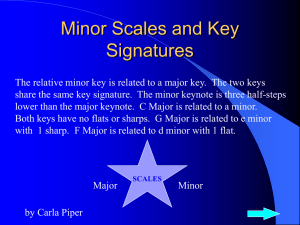
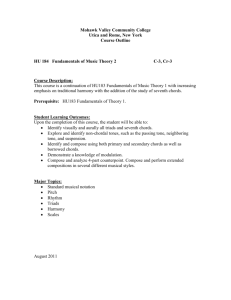
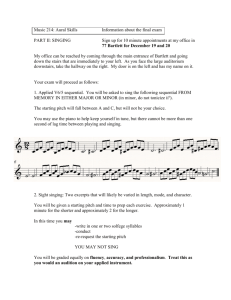
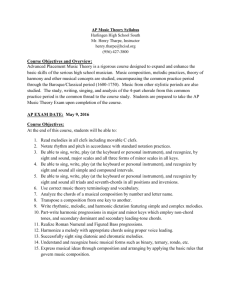
![Harmonising the Harmonic Minor Scale [Word doc]](http://s3.studylib.net/store/data/008947822_1-fe876fde6a621b1b60dc8bc81d92e0a7-300x300.png)
